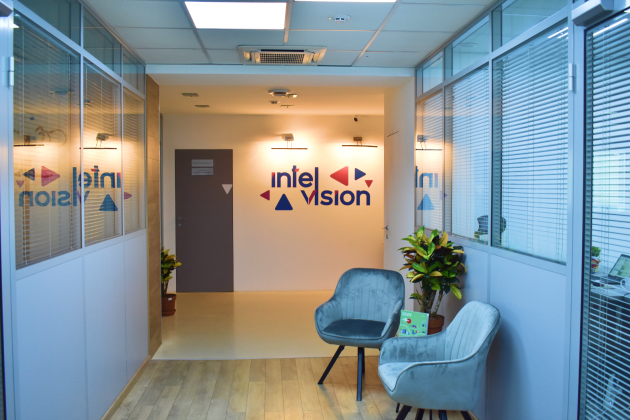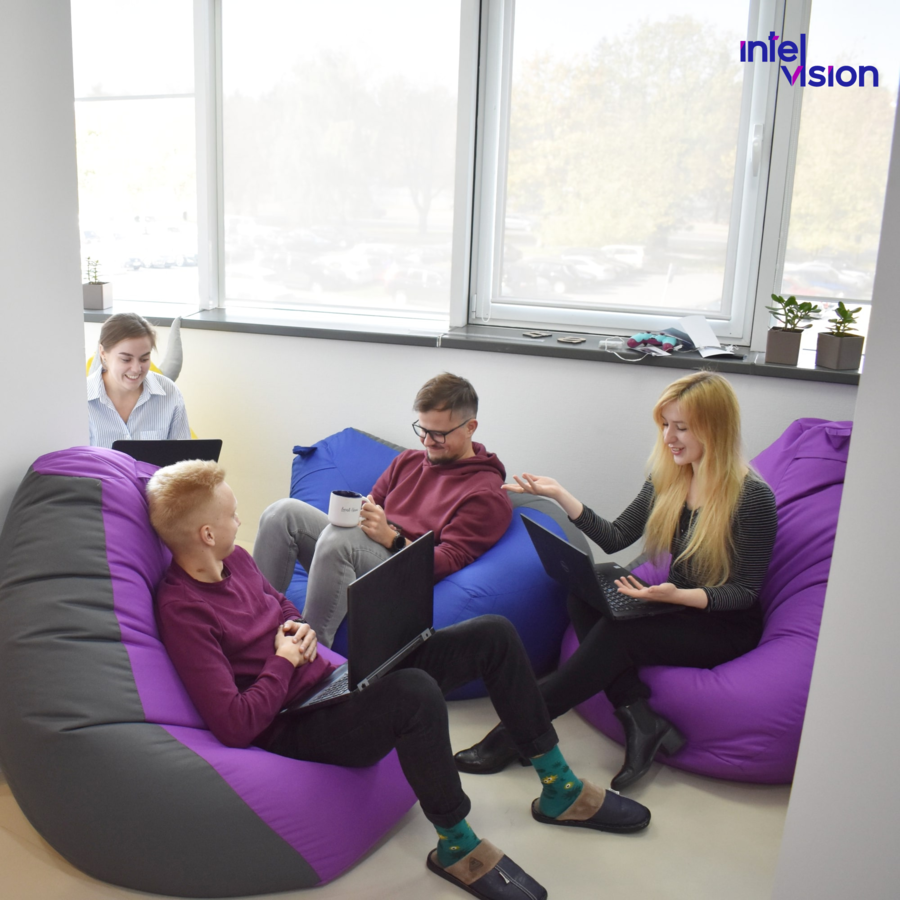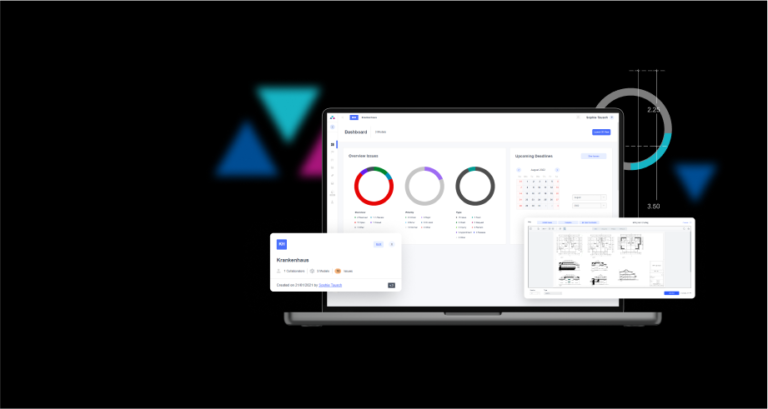
Remote Work vs Office: Our experience at Intelvision
Remote work vs office has become a hot topic since the pandemic of Covid 19 forced everybody to stay home. Now that restrictions are gradually being lifted and office work can resume, people are thinking about the ways to conduct business and consider the benefits of working in office vs home. Let’s go over the pros and cons.
Remote Work vs Office
Working at the office has always been the norm, however, companies gradually started to adopt some policies allowing for a home office to exist, essentially with the help of available digital tools. Before the Covid 19 pandemic, only rare companies worked with extensive or complete home offices like WordPress company, and 73% of businesses relied only on the in-house workforce. However, after the Covid 19 outbreak lots of companies, including Intelvision, adapted their way of working and started to telework. As a result, the share of remote workers in the US has grown from the pre-pandemic 7% to 62% nowadays.
As a responsible employer, Intelvision cherishes its employees and prioritizes their health.
That’s why we implemented telework and kept it even when it was not imposed by the government. As time passes and people learn to live according to the new norms, the question raises whether remote workers are the future or will we see a large-scale return to the office? This article approaches the issue of remote vs office work from all angles.
Pros of Working Remotely
Let’s first examine what positive aspects are commonly associated with remote work:
- Personal Control Over The Workspace. Many people have had the debate over the exact setting of the thermostat or how chilly the air conditioning should be. When working at home, these settings are completely up to the workers themselves, theoretically allowing them to work in their preferred climate. This goes further when considering factors like noise from colleges or sharing a workspace with more messy coworkers. Without these distractions people can more fully focus on their tasks.
- Larger Talent Pools. If you remove geographical constraints, then recruitment will have a much larger pool of candidates to draw from. As long as the developers are guaranteed stable internet connection and hardware, then they are able to simply log in and start programming remotely. In some cases, even time zones might not be an impediment when considering a candidate. This is especially important for IT and allows to recruit the brightest tech talents.
- Improved Mental Health. In fact, 82% of the employees have less stress when working from home than from the office. When working from home, people are on a more flexible schedule and have more time to sleep longer or hang out with their friends late at night. They don`t have to commute which also relieves them from stress. Few people gladly get into morning traffic or a packed train car and this has an effect on the mental health of workers. Other factors like office lighting, the lack of plants and less sleep will all negatively impact workers leading to more anxiety.
- Employee Retention. Recent surveys show that employees appreciate the option of working from home. 83% of the surveyed workers generally indicate that having the option to work from home at least once a week makes them look more favorably at their job. Therefore, adopting remote office policies can help to keep the best employees.
Cons of Working Remotely
Naturally, nothing is perfect and so there are a number of problems associated with working from home:
- Hardware Investment. If you want your employees to work fully or partly from home you will have to equip them with laptops and mobile phones so that they remain reachable throughout working hours. This means that employers potentially have to invest heavily in new hardware. As the lockdown started, all the Intelvision`s team members got all the required equipment to work from home.
In general, businesses that had some remote working options before the pandemic had a much easier time transitioning into full remote work. Remote workers’ home internet connections are also more prone to failure and make meetings and access more challenging.
- Software Investment. Having some or all the workers at home means that IT will have to set up easy ways for people to access office networks through VPN or other means and that everyone will need to be versed in using communication software so that there is not a breakdown in interoffice communication.
- Employee Distraction. Employees might work less efficiently outside of the office as there are fewer checks and social pressure on them. Some of the remote employees are not able to focus at home. Depending on an employee’s living situation, potentially in a small apartment with other occupants, roommates or children, working might end up being impossible.
- Loss of office contact. The remote workforce has fewer social interactions and this can lead to more shallow relationships with team members and more loose office culture. This can lead to less fruitful cooperation. Research has also shown that walking helps for creative thinking, as in the office people have to move to conference rooms, break rooms, and nearby desks. This additional movement and its related inspiration are lost when working remotely. That’s why we at Intelvision introduced online weekly team meetings after the outbreak of the Covid 19. Additionally, at Intelvision we have plenty of activities to become a closely-knit group like English language courses and online gaming evenings. As we held them during the lockdown, we got a brilliant opportunity to stay in touch as a team, keep up team spirit, and work efficiently.
Benefits of Working in Office
Traditional offices have also their own advantages, let’s look at a few:
- Improved Work-Life Balance. While commuting is not fun generally, it does provide a time for employees to mentally prepare for work and later to leave work behind. The clear separation between work and private time provides some people with the necessary structure. Even remote workers sometimes go to a coffee shop or a coworking space to have this boundary between professional and private time.
- Face To Face Contact. As good as modern communication can be, people are still able to better interact with people they are in the same room with. Eye contact, facial expressions, and body language are all much clearer to interpret. Research has shown that similar requests made personally or remotely were more likely to be positively answered when asked in person.
- Training And Help. When developers share the same space, the barrier to ask for help and give advice is much lower. This way, it is easier to achieve business goals and to cooperate on the projects. Personal contact also lowers the barrier between new employees and seniors. This allows new hires to become part of the team thanks to the additional personal contact during lunches or breaks. That’s why 59 % of the managers prefer personnel to work in the office.
- Great Team Spirit. It is essential to work as a team not only to be productive and efficient as a company but also to make each employee feel comfortable and appreciated. Working from the office allows us to easily organize different team-building activities to let people bond and feel like a part of a team.
- Comfortable Working Environment. Most offices are equipped with modern furniture such as ergonomic chairs and desks which are convenient to use and prevent health issues such as back problems.
Intelvision also offers its employees a comfortable and cozy working environment.
Cons of Working in Office
Traditional offices are also associated with the following flaws:
- Commuting. In order to get to the office, employees have to wake up earlier, take a bus, a train, or a ride which takes time, especially if during rush hours people get stuck in a heavy traffic. The same holds true about coming back home which requires more time as compared to telework.
- Less Flexibility. When working from the office, employees are expected to follow a schedule with a working day starting from 8-9 am and ending at 5-6 pm. In case you need to solve some personal issues, you can not actually tailor your day to combine both work and private life.
- Recruitment problems. Most surveys and studies agree that employees like the option of working at home. Sticking to rigorous rules about office work will discourage applicants from accepting potential offers. That’s why at Intelvision we remain quite flexible and don`t impose office work as an obligatory rule but allow our developers to work from home if required.
Conclusion
Of course, each employee is different and the pros and cons of the remote work vs office that are reviewed in this article might not be relevant to them. There is no clear answer as to what is an ideal workspace, whether it is an office setting, home, hybrid working, or flexible workspaces. It is fair to conclude that some home office protocols should be prepared in case of renewed pandemic restrictions or if other lockdowns go into effect.
Yet the office environment offers lots of benefits and allows to keep up vivid relations between team members, great corporate communication, and be more productive at work. That’s why we at Intelvision remain flexible and tolerate telework when it is needed, especially due to health reasons, yet at the same time, we encourage coming back to the office to grow together and drive our business and team spirit forward.













![$portfolio_img_mobile['title'] $portfolio_img_mobile['alt']](https://intelvision.pro/wp-content/uploads/2021/08/The-drive-ecommerce-development-project-1-350x328.png)









